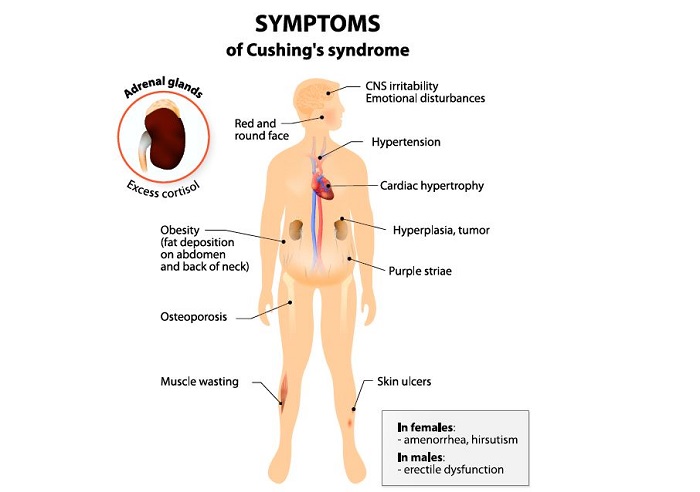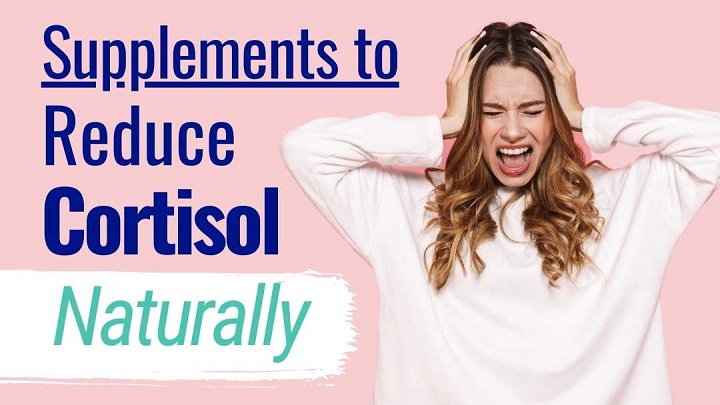Plays a pivotal role in regulating various bodily functions. Produced by the adrenal glands, cortisol helps manage metabolism, immune response, blood pressure, and the body’s stress response. While cortisol is essential for survival, chronically elevated levels can lead to adverse health effects, including weight gain, mood disorders, immune suppression, and cardiovascular issues. Fortunately, several natural supplements have shown promise in lowering cortisol levels and promoting overall well-being. In this comprehensive guide, we delve into the world of supplements that aid in cortisol reduction, offering insights into their mechanisms, efficacy, and safety.
Understanding Cortisol Imbalance

Before exploring supplements, it’s crucial to grasp the implications of cortisol imbalance. High stress levels, inadequate sleep, poor dietary choices, and sedentary lifestyles are common contributors to elevated cortisol levels. Chronic stress can disrupt the body’s natural cortisol rhythm, leading to a state of dysregulation known as cortisol imbalance. Symptoms of cortisol imbalance may include:
- Persistent fatigue
- Anxiety and irritability
- Insomnia or disrupted sleep patterns
- Weight gain, particularly around the abdomen
- Digestive issues
- Weakened immune function
The Role of Supplements in Lowering Cortisol
While lifestyle modifications remain paramount in managing cortisol levels, supplements can complement these efforts by providing targeted support. Numerous natural compounds have demonstrated cortisol-lowering properties, either by directly influencing adrenal function or mitigating the physiological effects of stress. Here’s a detailed exploration of some notable supplements:
Ashwagandha
Mechanism: Ashwagandha, an adaptogenic herb, helps modulate the body’s stress response by regulating cortisol levels. It acts on the hypothalamic-pituitary-adrenal (HPA) axis, reducing cortisol secretion during times of stress.
Efficacy: Clinical studies have shown that ashwagandha supplementation can lead to significant reductions in cortisol levels, accompanied by improvements in stress resilience, mood, and overall well-being.
Dosage: Typical doses range from 300 to 600 mg per day, standardized to contain 5% withanolides.
Rhodiola Rosea

Mechanism: Rhodiola rosea, another adaptogenic herb, exerts stress-relieving effects by modulating neurotransmitter levels and reducing cortisol production.
Efficacy: Research suggests that rhodiola supplementation can lower cortisol levels, enhance cognitive function, and alleviate symptoms of stress-related disorders.
Dosage: Recommended doses typically range from 200 to 600 mg per day, standardized to contain 3% rosavins and 1% salidroside.
Holy Basil (Tulsi)
Mechanism: Holy basil, revered for its adaptogenic properties in traditional medicine, helps combat stress by regulating cortisol release and promoting relaxation.
Efficacy: Studies have shown that holy basil supplementation can reduce cortisol levels, improve mood, and enhance resilience to stressors.
Dosage: Typical doses range from 300 to 600 mg per day of an extract standardized to contain 2% ursolic acid.
Magnesium
Mechanism: Magnesium plays a crucial role in modulating the HPA axis and regulating cortisol secretion. It acts as a cofactor for enzymes involved in cortisol metabolism.
Efficacy: Adequate magnesium levels have been associated with lower cortisol levels and improved stress resilience. Magnesium supplementation may benefit individuals with deficiencies or increased stress.
Dosage: Recommended doses vary based on individual needs and can range from 200 to 400 mg per day.
Phosphatidylserine (PS)
Mechanism: Phosphatidylserine, a phospholipid found in cell membranes, has been shown to mitigate the cortisol response to stress by blunting ACTH secretion from the pituitary gland.
Efficacy: Clinical trials have demonstrated that phosphatidylserine supplementation can reduce cortisol levels, particularly in response to acute stressors, and improve cognitive function.
Dosage: Effective doses typically range from 200 to 600 mg per day.
L-Theanine
Mechanism: L-Theanine, an amino acid primarily found in tea leaves, promotes relaxation and reduces stress by increasing alpha brainwave activity and modulating neurotransmitter levels.
Efficacy: Research indicates that L-theanine supplementation can lower cortisol levels, induce feelings of calmness, and improve cognitive performance under stress.
Dosage: Typical doses range from 100 to 400 mg per day.
Vitamin C
Mechanism: Vitamin C, a potent antioxidant, helps combat oxidative stress induced by cortisol excess. It also supports adrenal gland function and may aid in cortisol synthesis and regulation.
Efficacy: Adequate vitamin C intake has been associated with lower cortisol levels and improved stress resilience. Supplementation may be beneficial for individuals with suboptimal levels or increased stress.
Dosage: Recommended doses vary but typically range from 500 to 2000 mg per day.
Omega-3 Fatty Acids
Mechanism: Omega-3 fatty acids, found in fatty fish, flaxseeds, and walnuts, exert anti-inflammatory effects and may help regulate cortisol secretion by modulating cell membrane fluidity and signaling pathways.
Efficacy: Studies suggest that omega-3 supplementation can attenuate the cortisol response to stress, reduce inflammation, and promote overall well-being.
Dosage: Adequate intake levels vary, but supplementation with 1000 to 2000 mg of combined EPA and DHA per day is commonly recommended.
While natural supplements offer promising avenues for cortisol management, it’s essential to approach their use with caution. Consultation with a healthcare professional is advisable, especially for individuals with pre-existing health conditions or those taking medications. Additionally, adopting a holistic approach that incorporates stress-reduction techniques, balanced nutrition, regular exercise, and adequate sleep is key to optimizing cortisol levels and overall health.
In conclusion, the quest for cortisol balance involves a multifaceted approach encompassing lifestyle modifications, stress management techniques, and targeted supplementation. By harnessing the potential of natural remedies like ashwagandha, rhodiola, holy basil, magnesium, phosphatidylserine, L-theanine, vitamin C, and omega-3 fatty acids, individuals can strive towards achieving optimal well-being and resilience in the face of stress. Remember, it’s not just about lowering cortisol levels—it’s about fostering a harmonious balance between mind, body, and spirit for sustained vitality and vitality.


